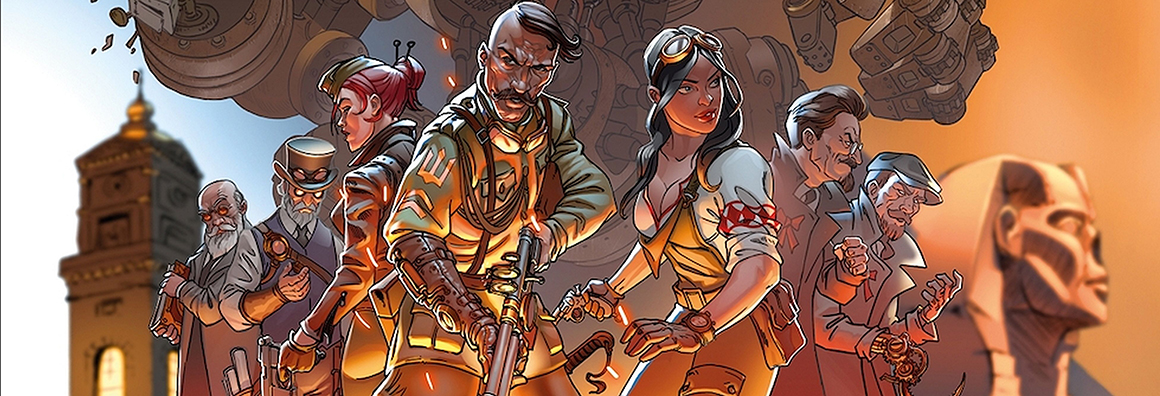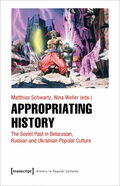History goes Pop? On the Popularization of the Past in Eastern European Cultures
In collaboration with the BMBF research project Designing the Past. Imagined History, Fiction and Memory in the Belarusian, Russian and Ukrainian Cultures (Head: Nina Weller, European University Viadrina Frankfurt (Oder))
Popular cultural media today play an important role in the reconstruction of collective imaginations of history. Mainstream films, novels, comics, multimedia messaging apps, television series, computer games and music videos generate, revise, perpetuate, dismantle or question common notions of the past and, thus, contribute to an affectively charged visualization and virtualization thereof. The popularization of historical images and narratives shapes and reassembles collective memory cultures to an even greater extent than state politics, school textbooks or museum exhibitions do.
Ten years ago, a volume edited by Barbara Korte and Sylvia Paletschek titled “History Goes Pop” dealt exclusively with similar phenomena in western popular media and genres. Our workshop aims to continue this approach focusing on examples from Belarus, Germany, Hungary, Russia and Ukraine. We are interested in the role of globalized popular media in the post-Soviet space and the way in which they relate to national forms of remembrance and state policies of historiography: Do they reinforce or undermine the competition in memory politics that arose between the three countries after the collapse of the Soviet Union? In particular, we will discuss which historical events are in the center of attention and which media formats contribute the most to revising representations of the past in Eastern Europe. What strategies of dramatization, emotionalization and personalization of historical events do these media products offer, and to what extent do they manage to update older Soviet or even pre-Soviet (national) narratives and imaginations? Conversely, we need to ask what the marketing and commercialization of historical discourses suggest about a changing approach to the past in times of increasingly globalized media cultures.
The workshop will be held in English. Admission is free of charge, there is no need to register in advance.
Programm
Event poster
Event flyer (incl. abstract and program)
Tuesday, 10 Dec 2019
15.00–19.00
Opening of the Conference (Closed Meeting)
Wednesday, 11 Dec 2019
9.30
Welcome
10.00–11.30
Panel I: Transforming the Soviet Past: Popular Photographic and Cinematic Devices
Moderation: Erik Martin (EUV Frankfurt (Oder))
- Olga Shparaga (ECLAB Minsk): From External to Inner Contradictions. The Soviet Past in Belarusian Photography
- Yaraslava Ananka (Universität Innsbruck): Catherine the Little and Crimean Puppets. From Vandalism to Voodoo in Ukrainian Popular Culture
12.00–13.30
Panel II: Reinventing the Soviet Subject: Audio-visual Representations of Collective Belongings
Moderation Nina Frieß (ZOiS Berlin)
- Оlga Romanova (ECLAB Minsk): Deconstructing the "Soviet Man" in Belarussian Films of the Perestroika Period and the Early 1990s (in Russian)
- Matthias Schwartz (ZfL / FU Berlin): Reconstructing the "Soviet People". Entertaining History Narratives in the TV Series "Sluga Naroda"
15.00–16.00
Keynote Lecture
Moderation: Matthias Schwartz (ZfL / FU Berlin)
Jerome De Groot (University of Manchester): "Do You Ever Think how Different Life Could Be if You Could Change One Thing?". Experimental and Counterfactual Historical Fictions (via Skype)
16.30–18.00
Panel III: Narrating Violence: Imagined and Actual War Stories in Popular Fiction
Moderation: Clemens Günther (FU Berlin)
- Maria Galina (Novy Mir Magazine Moscow): Speculative Military Fiction in Post-Soviet Russian Literature. Themes and Tendencies (2000-2014)
- Tanya Zaharchenko (University of Oslo): Reading the Wound. Trauma and War Literature in Ukraine
18.30
Reception & Snack (Foyer / Senatssaal)
20.00
Venue: European University Viadrina, Große Scharrnstr. 59, 15230 Frankfurt (Oder), Senatssaal (R. 109)
Panel Discussion / Book Presentation (in German/Russian)
Sirens of War. Populism, Politics of History and the Ukrainian-Russian Conflict
Moderator: Matthias Schwartz (ZfL / FU Berlin), Interpreter: Yurko Prokhasko
with Roman Dubasevych (Universität Greifswald), Vakhtang Kebuladze (Kyiv), Igor Sid (Moscow)
![]() Sirenen des Krieges. Diskursive und affektive Dimensionen des Ukraine-Konflikts
Sirenen des Krieges. Diskursive und affektive Dimensionen des Ukraine-Konflikts
Thursday, 12 Dec 2019
10.00–11.30
Panel IV: Post-Soviet Identity Formations: Strategies of Appropriating History
Moderation: Nikolai Okunew (ZZF Potsdam)
- Aleksey Bratochkin (ECLAB Minsk): "Our history": How Belorusian History and Identity Became Part of the Global "Experience Economy"
- Karin Reichenbach (Universität Leipzig): Slavic Myth and Rright-Wing Extremism in Eastern European Popular Cultures of History
12.30–13.15
Panel V: Mainstream Sites of Memory: Consuming and Occupying Past Events
Moderation: Bodo Mrozek (Berlin Center for Cold War Studies/IfZ München)
- Stephan Krause (GWZO Leipzig): "What Was Outside?" Popular Film(hi)stories of 1956 in Hungary
- Oleksandr Zabirko (Universität Bochum): Fictionalized Eurasianism: Lev Gumilev's Ideas of History in Popular Russian Literature after 2000
14.45–15.30
Moderation: Nina Weller (EUV Frankfurt (Oder))
Roman Dubasevych (Universität Greifswald): Mummified Subversion. Reconstructions of Soviet Rock Underground in Contemporary Russian Cinema
15.30–16.00
Concluding Remarks: Matthias Schwartz, Nina Weller
Abb. oben: Воля 2. Український фантастичний комікс. Титульна сторінка (деталь) [The Will 2. Ukrainian fantastic comic book. Title page (detail)]. Source: https://thewill.com.ua

